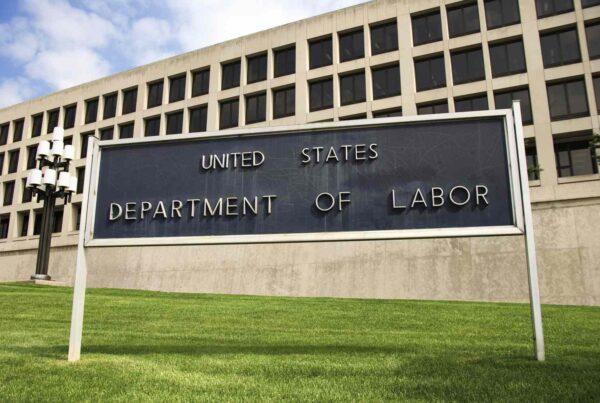A comprehensive guide to safeguarding your 401(K) during recessions.
Key points
- A recession denotes a period of considerable economic deceleration.
- It is probable that the value of investments in your 401(K) will diminish amidst a recessionary phase.
- The majority of equities tend to recuperate from the pullback induced by a recession in due course.
A recession, characterized by a significant economic slowdown, can be a daunting experience, particularly for those witnessing their 401(K) investments dwindle. Despite the decline in value during these periods, it is crucial to recognize that most equities tend to recover eventually. To navigate through these challenging times, understanding the reasons behind recessions and adopting a well-informed strategy becomes vital. As we venture into 2023, concerns about a potential recession have heightened due to Federal Reserve actions in response to inflation. This article aims to provide detailed insights into the impact of recessions on 401(K) accounts, reasons behind economic downturns, and proactive steps to safeguard your retirement savings.
Understanding 401(K) and Recessions
A 401(K) is an employer-sponsored retirement plan offered by numerous private-sector companies. Employees can contribute part of their paychecks to their 401(K) accounts, reducing their taxable income for the year. These funds grow tax-free until withdrawal during retirement. Additionally, employers may match employee contributions up to a specific percentage of their salary.
During recessions, asset prices, including those within 401(K) accounts, can suffer. Historically, the S&P 500 has seen an average loss of 8.8% during the four recessions since 1990. However, the severity of the impact varies between different economic downturns, as exemplified by the 38% decline during the Great Recession in 2008. It’s worth noting that by the time a recession is officially declared, the economy may have already experienced months of decline, leading to 401(K) losses before acknowledgment.
The Road to Recovery
While economic downturns can evoke fear, history has shown that the U.S. stock markets have rebounded from every downturn, emphasizing the temporary nature of recessions. Predicting the exact timing of a market recovery is challenging, making short-term trading a high-risk endeavor. Instead, experts advocate staying invested for the long term, given the stock market’s historical recovery pattern.
Preserving Your 401(K) Amidst Recession
When faced with a declining 401(K) balance and impending recession, it is natural to seek ways to safeguard your retirement savings. However, financial experts advise against making knee-jerk decisions during such times. Instead, sticking to a consistent strategy becomes crucial.
- Continue Regular Contributions: Consistent contributions through dollar-cost averaging can help mitigate the impact of market volatility. Continue contributing to your 401(K) plan even during a recession, as this approach evens out the cost of investments over time.
- Maintain Diversification: A well-diversified portfolio is key to long-term investing success. Diversify your 401(K) by including various assets, ensuring you don’t concentrate all your investments in a single sector. Target-date funds can serve as a convenient and diversified investment option.
- Consider Defensive Stocks: Defensive stocks, found in sectors where consumers continue spending regardless of economic conditions, tend to perform well during recessions. Examples include consumer staples, healthcare, and utilities.
- Opt for Value Stocks: During economic downturns, value stocks, which are reasonably priced relative to their earnings, tend to outperform growth stocks. Their affordability and lesser need for additional capital make them attractive during recessions.
- Incorporate Income-Producing Assets: During a recession, income-producing assets such as bonds and dividend stocks can provide stability and regular income. Bonds, in particular, often fare well during economic downturns.
Experiencing a recession and witnessing a decline in your 401(K) can be worrisome, but understanding the historical resilience of the stock market and adopting a prudent investment approach can alleviate anxiety. Continuously contributing to your 401(K), diversifying your portfolio, and considering defensive and value stocks can be effective strategies to safeguard your retirement savings during economic downturns. While recessions present challenges, they are temporary, and a well-informed, long-term investment strategy is crucial in navigating through these uncertain times and securing a comfortable retirement.
Frequently asked questions (FAQs)
Is it advisable to reduce 401(K) contributions during a recession?
It is recommended to maintain or even increase your 401(K) contributions regardless of economic events. Contributing to your 401(K) during a recession can be advantageous as it presents an opportunity to purchase investments at lower prices due to the downturn in the stock market.
Can a 401(K) recover after a recession?
Yes, a 401(K) has the potential to recover after a recession if given sufficient time to recoup losses. Throughout history, the stock market has consistently rebounded from recessions and eventually reached new highs.
Furthermore, it is worth noting that 401(K) accounts may begin to recover prior to the end of a recession. In past recessions identified by the National Bureau of Economic Research from 1973 to 2021, the stock market initiated its recovery while the economy was still contracting.
Is it advisable to cash out my 401(K) if the market crashes?
Cashing out a 401(K) during a market crash is ill-advised. Although market downturns can be brief and relatively mild compared to subsequent recoveries, selling off investments during a bear market can lead to significant losses. Holding on to your investments during such periods can help safeguard your long-term financial interests.







